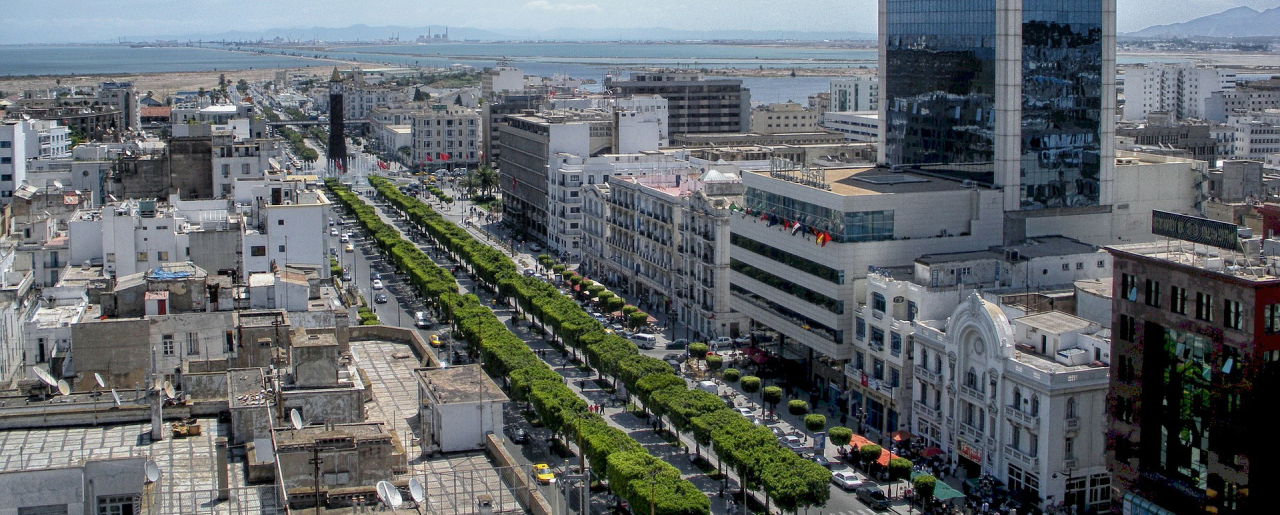The Greens in Tunisia are not organised as a political party, but instead as a Non-Governmental Organisation called the Green University of Tunisia. This was founded in 2012 by two well-known individuals in Tunisia: Dr. Khaled Chouket – a famous political figure and writer as well as a former member of the Green Left Party in the Netherlands, where he lived in exile for 21 years – and Dr. Mnaouer Djemali, a teacher and department chief in the National Institute of Agriculture in Tunis (INAT) and a well-known researcher in genetics.
In the last year, the Greens of Tunisia have focused on the following themes:
- To assist Tunisia in successfully completing its democratic transition process;
- To integrate the Green agenda in the political programmes of the main political parties;
- To support the start-ups of Tunisia to be more green and to establish more green companies;
- To promote green ideas in the national struggle against terrorism and violence; and
- To introduce green knowledge for academic centres and universities as the knowledge of the future.
There is a Ministry of Environment in the current government, but there are a lot of environmental problems in Tunisia that need to be addressed, including pollution in large cities, as well as the disrespect of environmental laws. We have had an environmental police unit since 2017, but this is still a new project and not yet developed.
‘The Green struggle is a global struggle’
One of our major successes as the Greens was in the first local elections after the Revolution, organised on 6 May 2018. The Greens have worked to integrate the protection of the environment and other green concepts in the programmes of Tunisian political parties – and all political parties have now made the environment a main point in their agendas.
In addition, in the last four years, the Greens in Tunisia have organized more than 50 training sessions and workshops. We have recruited more than 1,000 new, young leaders, some of whom of them are now members in the municipal councils. As mentioned before, we are not a political party, but some of the Greens are leaders in the main political parties in Tunisia and some of them have been ministers: Dr. Chouket, now one of the leaders of the Nidaa Tounes party, was the Minister for Parliamentary Affairs in the previous government.
Our main project in 2019 is to establish the National Network for Green Youth in Tunisia (NNGY). We plan to organise six regional meetings in six different places in Tunisia and we will finish with a National Congress, where we will elect a committee to create an executive agenda and finally declare the network active.
In terms of our wider Green network, Tunisian Greens have some connections based on personal contacts – but we need to do more with African, European, and global partners to develop official institutional relations and networks, as well as to learn from other Greens around the world.
To do so, we first need to develop our local skills and resources, in order to cooperate with colleagues in our area and on the international stage. After all, the Green struggle is a global struggle, and one that should be shared.
Tunisia is known in the Arab world as Green Tunisia, which could help us to further our mission and vision. To be Tunisian means: by nature, be Green!


